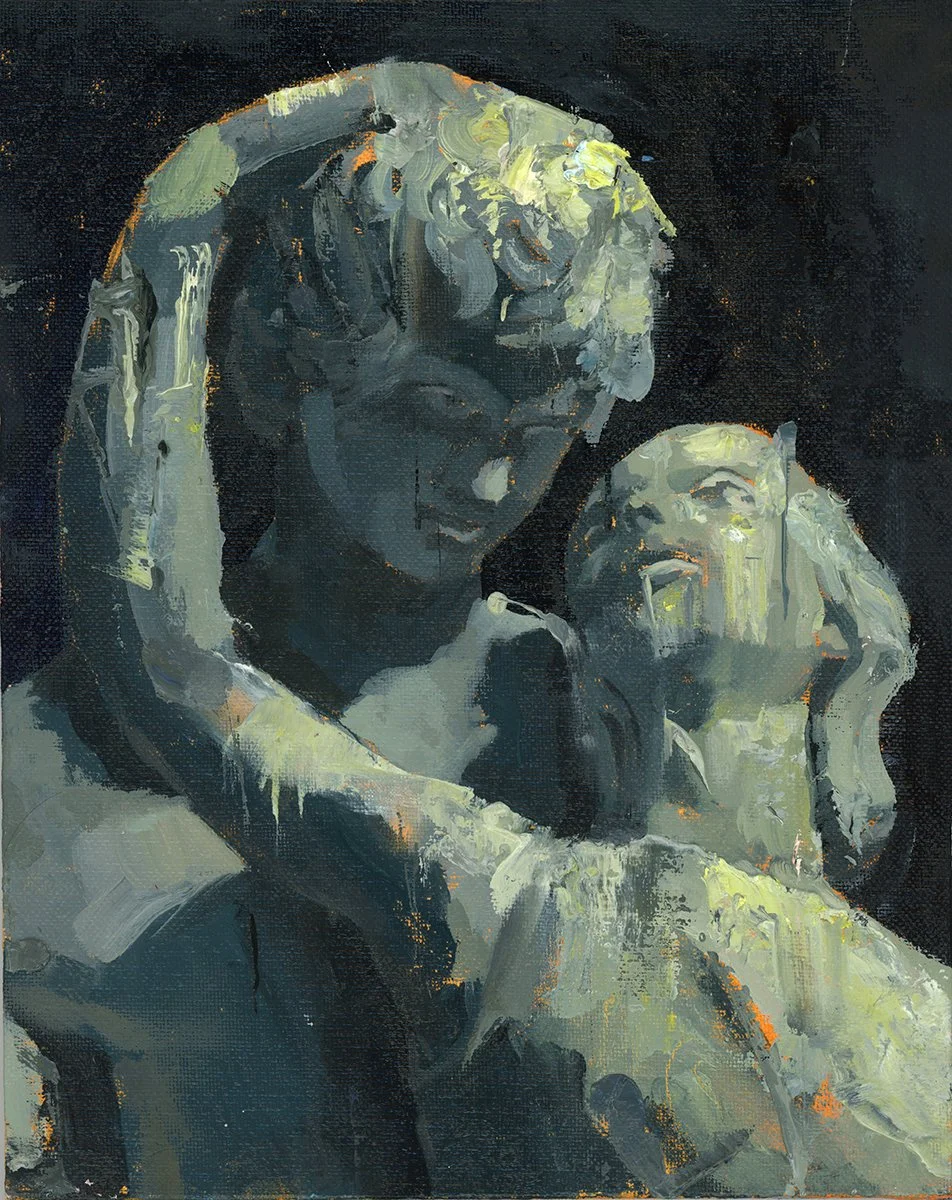Zachary Mendoza
Zach Mendoza is a painter currently based in Houston, TX with a growing exhibition history of solo and group shows throughout the United States. His work has been included in New American Paintings, Creative Quarterly and in online publications as well.
Could you tell us a little more about your background and how you began creating art?
I've been drawing and making art all of my life but I began seriously pursuing art in college when I decided to study illustration at the Art Center College of Design. In college, I was surrounded by talented product designers, digital designers, advertising experts and other sensible people and I learned quickly that my heart was always in painting.
What does your art aim to say to its viewers?
I work in series and I have several in progress at the moment. I am obsessed with figuring out ways to describe the human condition. One series I am working on is a series of portraits from various headstones at Forest Lawn Memorial in Hollywood, CA. I am fascinated with these sculptures and the symbolism imbued in them. I think that people visit cemeteries and galleries for the same reasons sometimes; to connect with some sense of transcendent quiet.
When I was young and stood in front of Degas pastels at the Norton Simon Museum in Pasadena, I had an overwhelming sense of awe and mild dread that the artist had, at that point, been dead for a whole century but that his works could still sing so lovely in front of me. I felt the same way in front of Turner's "Death on a Pale Horse" when I visited the Tate Britain on a study abroad trip in college. This was a small work that I had never seen even in textbooks and when I found it in a corner of the otherwise endless inspiration at the Tate, it commanded my full attention and reflection unlike anything I had ever experienced. I don't remember why but it caught me. I have always aimed to have that effect on someone else. I want to speak to someone today and centuries into the future.
Can you tell us about the process of creating your work? What is your daily routine when working?
Process is a very important aspect of how I make a painting. I like to build up surfaces and then rework them until I find something that works and is hopefully surprising to me. I like to have all of my materials in my arms reach; pallet knives, scraper tools, paints, a wet pallet, old brushes and some Krink drip markers among other things. I have a box of yupo paper clippings with dried brush strokes that I like to keep nearby also in case I see an opportunity to collage something. I like pushing materials as far as I can when I'm working and sometimes I ruin things. I am heavy handed and messy and have difficulty not breaking crayons in half when I draw flowers with my daughter.
What is the essential element in your art?
I like opposites. I love expressive marks atop structures or rendered realism. Abstraction and representation, chaos and order, familiar and obscure. I really like to mix these things and I think this is an essential element in a piece. When I make something that lacks opposites I think that the work can seem too conventional or stale.
In your opinion, what role does the artist have in society?
Shiele said "Art cannot be modern. Art is primordially eternal" and I think that creating works that lament a universal truth is the role of the artist. I know it sounds lofty but I do think that artists create works that are transcendent and command reflection. I don't know that I've accomplished this very often but it's certainly my aim.










